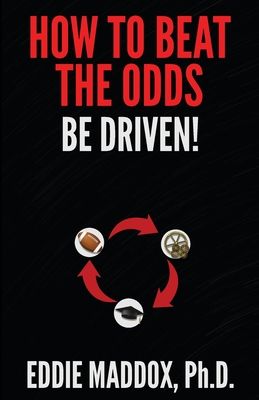Home
Long Odds
Loading Inventory...
Barnes and Noble
Long Odds
Current price: $6.99


Barnes and Noble
Long Odds
Current price: $6.99
Loading Inventory...
Size: Paperback
*Product Information may vary - to confirm product availability, pricing, and additional information please contact Barnes and Noble
Sir Henry Rider Haggard, KBE (22 June 1856 - 14 May 1925) was an English writer of adventure novels set in exotic locations, predominantly Africa, and a founder of the Lost World literary genre. He was also involved in agricultural reform throughout the British Empire. His stories, situated at the lighter end of Victorian literature, continue to be popular and influential. Henry Rider Haggard, generally known as H. Rider Haggard or Rider Haggard, came from a line of Danish descent and was born at Bradenham, Norfolk, the eighth of ten children, to Sir William Meybohm Rider Haggard, a barrister, and Ella Doveton, an author and poet. He was initially sent to Garsington Rectory in Oxfordshire to study under Reverend H. J. Graham, but unlike his older brothers who graduated from various private schools, he attended Ipswich Grammar School. This was because his father, who perhaps regarded him as somebody who was not going to amount to much, could no longer afford to maintain his expensive private education. After failing his army entrance exam, he was sent to a private crammer in London to prepare for the entrance exam for the British Foreign Office, for which he never sat. During his two years in London he came into contact with people interested in the study of psychical phenomena. After returning to England in 1882, Haggard published a book on the political situation in South Africa and handful of unsuccessful novels before writing the book for which he is most famous, King Solomon's Mines. He accepted a 10% royalty rather than £100 for the copyright. A sequel, Allan Quatermain, soon followed, and She and its sequel Ayesha, swashbuckling adventure novels set in the context of the Scramble for Africa (the action of Ayesha however happens in Tibet). The hugely popular King Solomon's Mines is sometimes considered the first of the Lost World genre. She is generally considered to be one of the classics of imaginative literature and with 83 million copies sold by 1965, it is one of the best-selling books of all time. He is also remembered for Nada the Lily (a tale of adventure among the Zulus) and the epic Viking romance, Eric Brighteyes. While his novels portray many of the stereotypes associated with colonialism, they are unusual for the degree of sympathy with which the native populations are portrayed. Africans often play heroic roles in the novels, although the protagonists are typically, though not invariably, European. Notable examples are the heroic Zulu warrior Umslopogaas and Ignosi, the rightful king of Kukuanaland, in King Solomon's Mines. Having developed an intense mutual friendship with the three Englishmen who help him regain his throne, he accepts their advice and abolishes witch-hunts and arbitrary capital punishment. Three of Haggard's novels were written in collaboration with his friend Andrew Lang who shared his interest in the spiritual realm and paranormal phenomena. Haggard also wrote about agricultural and social reform, in part inspired by his experiences in Africa, but also based on what he saw in Europe. At the end of his life he was a staunch opponent of Bolshevism, a position he shared with his friend Rudyard Kipling. The two had bonded upon Kipling's arrival at London in 1889 largely on the strength of their shared opinions, and the two remained lifelong friends.


















